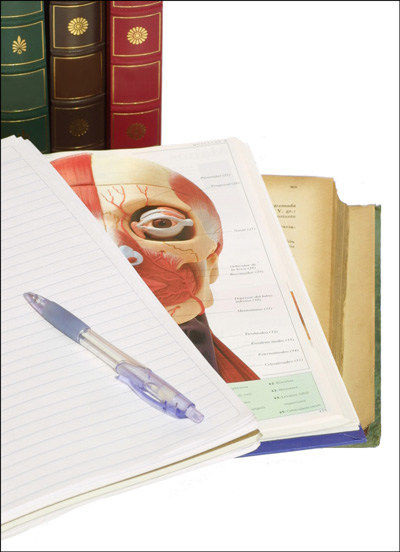 An overview of program progression is provided below. Students are referred to the Orientation handbook for detailed information.
An overview of program progression is provided below. Students are referred to the Orientation handbook for detailed information.
Mentor Selection
All incoming students must complete three research rotations with different faculty members of the JGPT. All rotations must be approved in advance by the Director. Upon selection of a thesis laboratory, students need to submit the Thesis Advisor Selection Form to the Program Director.
Qualifying Exams
The Written and Oral Qualifying Exams are given at the end of the 2nd year of classes for Ph.D. students. After successful completion of required coursework, predoctoral students petition the Chairs of the Academic Standing Committee (phoebe.stapleton@rutgers.edu and jl1450@eohsi.rutgers.edu) in writing for permission to take the Examinations. Petitions must include a letter of recommendation from the research mentor.
The written examination tests the student’s mastery of course material from the four semesters of coursework, with particular emphasis on his/her ability to integrate this knowledge. The Committee reviews the student’s record to confirm eligibility and resolves outstanding academic issues before the student is granted permission to sit for the examination. The results of the qualifying examination are reviewed by the Examination Committee, which issues a Pass, a Provisional Pass or Failure. Students receiving a Provisional Pass have minor weaknesses, usually in one topic area of the examination, which are corrected to the Examination Committee’s satisfaction by remedial work. Failure to complete the remedial obligations to the satisfaction of the Director and the Examination Committee may result in dismissal from the Program. Alternatively, at the discretion of the Examination Committee and in consultation with the JGPT Director, Chair of the Academic Standing Committee and the Research Mentor, the student may be provided the option to complete the requirements for an M.S. degree.
The Oral Preliminary Examination committee is composed of a standing examination committee of which the research mentor is not a member. The Oral Examination will require the student to answer questions drawn from their course material and to synthesize material from courses, seminars, and laboratory experiences. It is strongly advised that the student discuss with his/her committee members the types of questions that may be asked during the examination. Students need to bring a Qualifying Exam A Form to the oral exam.
Thesis Proposals
Ph.D. students are required to complete their oral thesis proposal within 18 months of the qualifying exams. This document, written in an NIH R01 grant format, presents a testable hypothesis, and the specific aims and approaches by which the hypothesis will be tested. The student does not need to have extensive preliminary data at this time. The proposal is defended before a committee drawn from the student’s track faculty and Chaired by the student’s research mentor. Students need to bring a Candidacy Form to the thesis proposal defense.
Thesis Committees
During the third year, students finalize the membership of their thesis committee. The purpose of a thesis committee is to guide and critically review the research of the student. The committee may recommend or require that the student obtain additional background in a specific area if they deem this crucial to completion of the thesis project. Doctoral thesis committees consist of the primary advisor (who Chairs the committee) and three additional JGPT members. In addition, Ph.D. committees must include one scientist from outside the JGPT, usually from outside the participating universities. The Committee for the Masters Candidate consists of a minimum of three members from the Toxicology Program (one of whom is the primary advisor). An additional outside member is optional. The members of the research committee are selected by the student and the primary advisor. The composition of all thesis committees must be approved by the Director of the JGPT. The Chair of the Academic Standing and Student Affairs Committee and Program Director should be notified of the composition of Doctoral Research Committee within six months after completion of the Qualifying Examination. Students need to submit Annual Research Advisory Committee Meeting Forms to the Program Director each summer in order to be reappointed.
Graduation
After completion of thesis research, a written thesis is prepared. The final thesis is given to the thesis committee at least two weeks before the scheduled defense date. Masters candidates will also undergo a comprehensive oral examination (on their research and on other areas of toxicology) following the public oral presentation of their research. A thesis defense checklist is available here.
The Director of the Program must be notified of all thesis defenses at least one month in advance in order that her office may inform the university community of the public defense. The public defense consists of a formal, one-hour research lecture presented by the candidate to the university community and guests, followed by an open question period. This is followed by a closed defense, attended by the student’s full research committee and external advisor. Students need to bring their Final Defense Form based on Graduate School affiliation.
